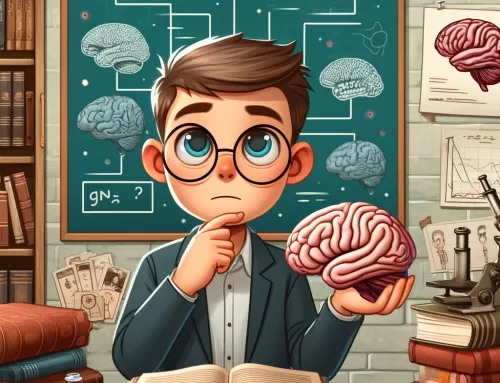Our ability to focus allows us to live a fulfilling life. Focus can be divided into three groups: our inner focus (our self-awareness), our other focus, which allows us to have successful relationships, and the outer focus, which helps us navigate the world. All three used together allow us to be happy and productive.
Our addiction to modern technology such as smartphones and tablets means we’re losing our ability to focus. An entire generation is growing up glued to the screen, losing the ability not only to concentrate on any task for very long, but also the ability to create self-awareness or meaningful relationships with others.
It is not only children who are affected by the constant information flow provided by technology. All of us struggle to manage the distraction that a buzzing phone creates. This has led to us developing “habits of attention that make us less effective.” According to Herbert Simon, 1977 Nobel-winning economist, “A wealth of information creates a poverty of attention.” Now, more than ever, it is vital that we train our attention span and focus, since this is what connects us with the world.
How does focus work?
Distractions are all around us, and within us as well. They can be sensory and emotional – but the most potent distractors are emotional turmoil in our lives. Being able to take a deep breath and step back is essential for good performance.
When we focus, we constantly have to fight distractions. But our attention does have a limit. It’s like a muscle – and thankfully, we can train it. The working of our minds can be roughly differentiated into two main states: either bottom-up or top-down thinking. Bottom-up workings of the mind are the automatic thinking processes that literally take place at the back of our minds. They’re impulsive and driven by emotion. The bottom-up mind is always active. It scans our environment before selecting certain features it then brings to our attention.
The top-down mind, on the other hand, is the seat of self-control, where our ability to learn lives, and it demands more effort since it is not automatic. The top-down mind is the active engagement of attention – it allows us to control our thoughts and emotions. In order to focus, we need to train the top-down mind.
The benefits of being able to focus are endless. We can get into a state of flow when we work, which allows us to achieve true mastery in any given field. Getting into the flow state is particularly easy if we love what we’re doing. But even if you struggle getting into the flow state on an average day, as about 80% of people do, you can try to entice it by setting yourself tasks that challenge you.
Letting our minds drift isn’t always bad, though. In fact, half of our thoughts are daydreams. The wandering mind can be seen as the brain’s default mode. This is when we have creative insights or come up with solutions to unresolved problems.
Developing self-awareness
It’s essential for success to have confidence in our own values. Take George Lucas as an example. When he first came up with the film script for Star Wars, he refused a lucrative deal from Hollywood, since he wanted to retain the artistic control over his film. This eventually ended up being a rewarding choice for him, but what kept him on the path of pursuing his dream was that he believed in his vision.
Inner focus, or self-awareness, allows us to know our own values, but it also encompasses the ability of metacognition: being able to think about thinking, and being able to analyze our thoughts and to adjust them. Meta-emotion, another manifestation of self-awareness, means being able to guide and control our emotions.
The ability to focus on the inner workings of our mind lies at the root of all willpower and self-regulation. And how well we can exercise either of them defines our success in life.
In the 1970s, a test was conducted with toddlers who were given a marshmallow. They were told they could either eat it immediately or wait until the experimenter came back and have two, instead of one. During follow-ups years later, the children who had managed to wait for the second marshmallow went on to live more successful and healthier lives than those who hadn’t.
Self-awareness also allows us to achieve true excellence. You may have heard of the 10,000-hour rule, which is that in order to perfect a skill, one needs 10,000 hours of practice. That’s not quite true. What is needed is deliberate practice. And we can only deliberately work on improving mistakes when we have learned to recognize them first.
Reading others
The ability to focus does not only increase our self-awareness, it also helps in our relationships. Our other focus allows us to read nonverbal cues when talking to others and thereby gain insights into how the other person is feeling and react accordingly. To have successful relationships, other focus is essential.
The reading of these signs is automatically performed by our bottom-up minds, through our emotional empathy. But the reaction to them is governed by our top-down minds, our cognitive empathy. To create sympathy, however, we need empathic concern, which is a mixture of the two.
Seeing the bigger picture
The third kind of focus, outer focus, manifests itself in systems awareness. This is the ability to detect and map the patterns that govern the world around us. We don’t have a natural circuitry in the brain that’s used for reading systems. So, systems awareness is learned through top-down thinking.
If we’re not aware of the systems around us, this can have serious consequences: dealing with traffic jams is a good example for this. The short-sighted solution would be to build more roads, so that traffic can move more quickly. However, this would lead to more development on these roads, which means more traffic in the long run.
One effective way of learning systems awareness is by playing computer games. While these can have potentially dire effects on children’s development, one positive side effect is the ability to learn “the ground rules of an unknown reality.”
On the upside, systems awareness can help us to stop climate change, or global pandemics. Knowing what causes them also means knowing where and how to stop them.
How to enhance your focus
Our ability to focus is like a muscle, so we can train it, like any other muscle. Try some of these ideas to enhance your own focus:
- One-pointed meditation: It trains you to focus on one specific sensation, usually the breath. Even though your mind will inevitably wander during the exercise, you will get better at focusing in time.
- Think positive! Focus on your strengths and on your dreams. Positivity will make it easier to learn new skills.
- When stuck on a problem, try going for a walk. This might allow your bottom-up mind to process and come up with a solution to your problem.




